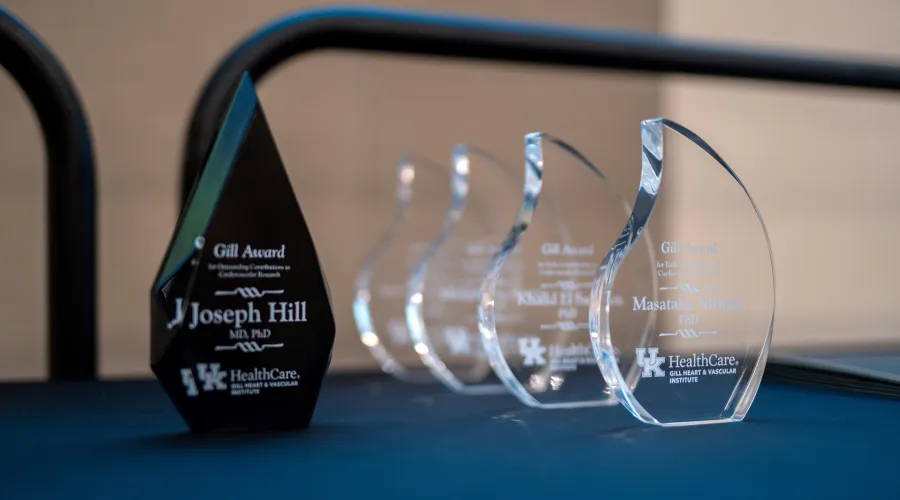
Gill Awards
Gill Award Nominations
Nominations currently closed. Nominations will open soon for 2026.
The Gill Awards
The Gill Heart and Vascular Institute Early Career Award
Recognizing an early career investigator, typically within the first seven years of their faculty appointment, for innovation and creativity that has impacted cardiovascular research and/or advancements in clinical care.
The award recipient will present their body of work at the Annual Gill Heart and Vascular Institute Cardiovascular Research Day on September 18, 2026.
The Gill Heart and Vascular Institute Award for Outstanding Contributions to Cardiovascular Research
Recognizing notable and life-long achievements in research that have had a sustained impact on understanding cardiovascular biology and disease and/or that have changed the standard of cardiovascular clinical care.
The award recipient will present their body of work at the Annual Gill Heart and Vascular Institute Cardiovascular Research Day on September 18, 2026.
2025 Award Recipients
Gill Heart and Vascular Institute Outstanding Contributions to Cardiovascular Research Award
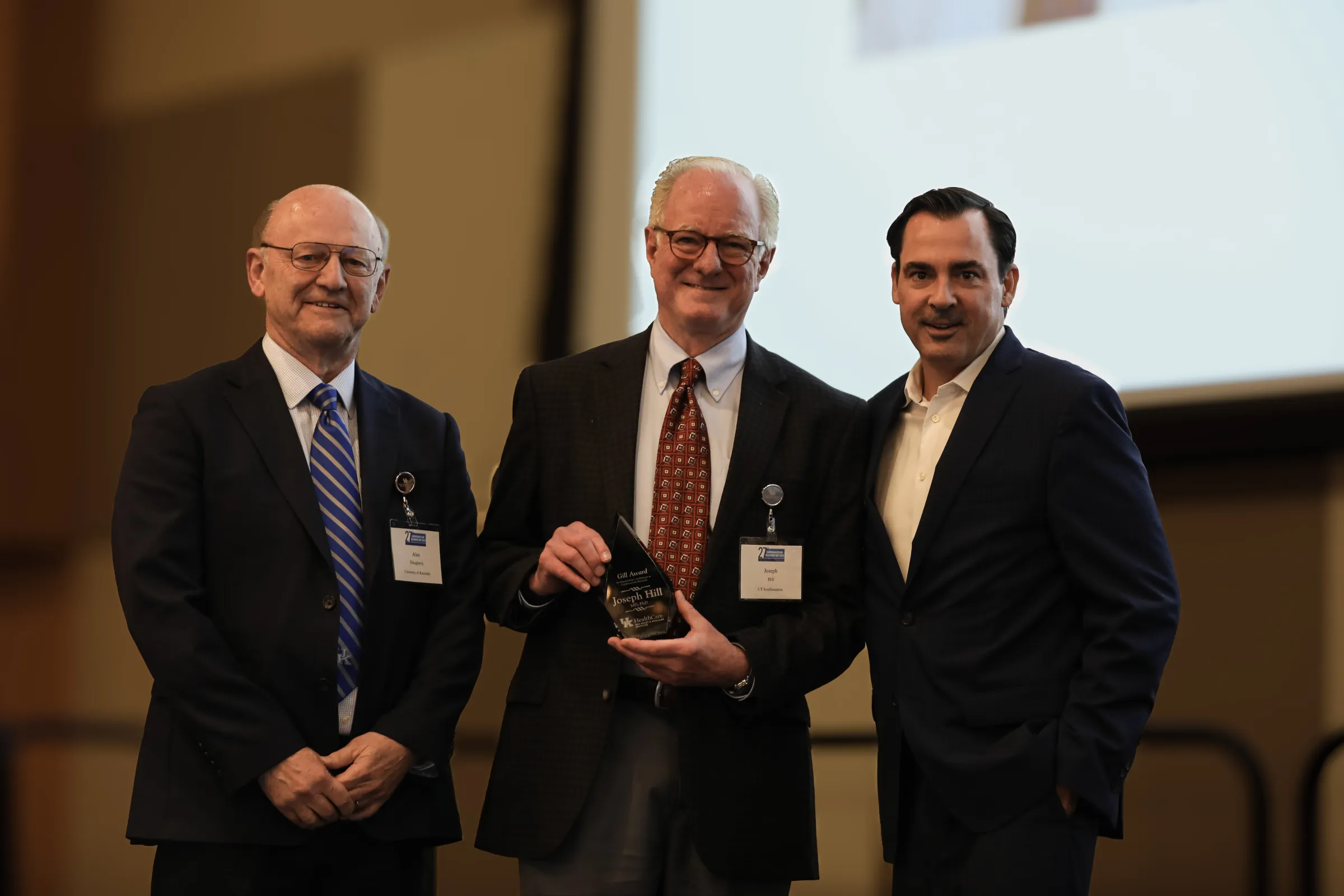
Joseph Hill, MD, PhD
Professor
UT Southwestern Medical School
About Dr. Hill
Dr. Hill is a cardiologist-scientist whose research focuses on molecular mechanisms of remodeling in the disease-stressed myocardium. He graduated with an MD, PhD, from Duke University. Next, he pursued postdoctoral scientific training at the Institut Pasteur in Paris, followed by clinical training in Internal Medicine and Cardiology at the Brigham and Women’s Hospital, Harvard Medical School. Dr. Hill served on the faculty of the University of Iowa for 5 years before moving in 2002 to the University of Texas Southwestern Medical Center to assume the role of Chief of Cardiology and Director of the Harry S. Moss Heart Center.
Dr. Hill’s research group strives to decipher mechanisms of structural, functional, metabolic, and electrical remodeling in heart disease with an eye toward therapeutic intervention. Dr. Hill serves on numerous committees, boards, and study sections, and he lectures widely. In addition, he serves on several editorial boards, including Circulation Research: Senior Consulting Editor, American Journal of Physiology, Heart and Circulatory Physiology, and American Journal of Cardiology. He is Editor-in-Chief of the textbook Muscle: Fundamental Biology and Mechanisms of Disease. He has received numerous recognitions and awards, including election to the Association of American Professors; he recently served as President
of the Association of University Cardiologists and chair of the Academic Council of the American College of Cardiology. He received the 2018 Research Achievement Award from the International Society for Heart Research, the 2020 Lucian Award from McGill University, delivered the William Harvey Lecture this year at the European Society of Cardiology, and received the 2023 Medal of Merit from the International Academy of
Cardiovascular Sciences. Presently, he serves as Editor-in-Chief of Circulation, the highest ranking cardiovascular journal. Dr. Hill maintains an active clinical practice focusing on general cardiology, heart failure, and hypertension.
About Dr. Hill
Dr. Hill is a cardiologist-scientist whose research focuses on molecular mechanisms of remodeling in the disease-stressed myocardium. He graduated with an MD, PhD, from Duke University. Next, he pursued postdoctoral scientific training at the Institut Pasteur in Paris, followed by clinical training in Internal Medicine and Cardiology at the Brigham and Women’s Hospital, Harvard Medical School. Dr. Hill served on the faculty of the University of Iowa for 5 years before moving in 2002 to the University of Texas Southwestern Medical Center to assume the role of Chief of Cardiology and Director of the Harry S. Moss Heart Center.
Dr. Hill’s research group strives to decipher mechanisms of structural, functional, metabolic, and electrical remodeling in heart disease with an eye toward therapeutic intervention. Dr. Hill serves on numerous committees, boards, and study sections, and he lectures widely. In addition, he serves on several editorial boards, including Circulation Research: Senior Consulting Editor, American Journal of Physiology, Heart and Circulatory Physiology, and American Journal of Cardiology. He is Editor-in-Chief of the textbook Muscle: Fundamental Biology and Mechanisms of Disease. He has received numerous recognitions and awards, including election to the Association of American Professors; he recently served as President
of the Association of University Cardiologists and chair of the Academic Council of the American College of Cardiology. He received the 2018 Research Achievement Award from the International Society for Heart Research, the 2020 Lucian Award from McGill University, delivered the William Harvey Lecture this year at the European Society of Cardiology, and received the 2023 Medal of Merit from the International Academy of
Cardiovascular Sciences. Presently, he serves as Editor-in-Chief of Circulation, the highest ranking cardiovascular journal. Dr. Hill maintains an active clinical practice focusing on general cardiology, heart failure, and hypertension.
Gill Heart and Vascular Institute Early Contributions to Cardiovascular Research Award
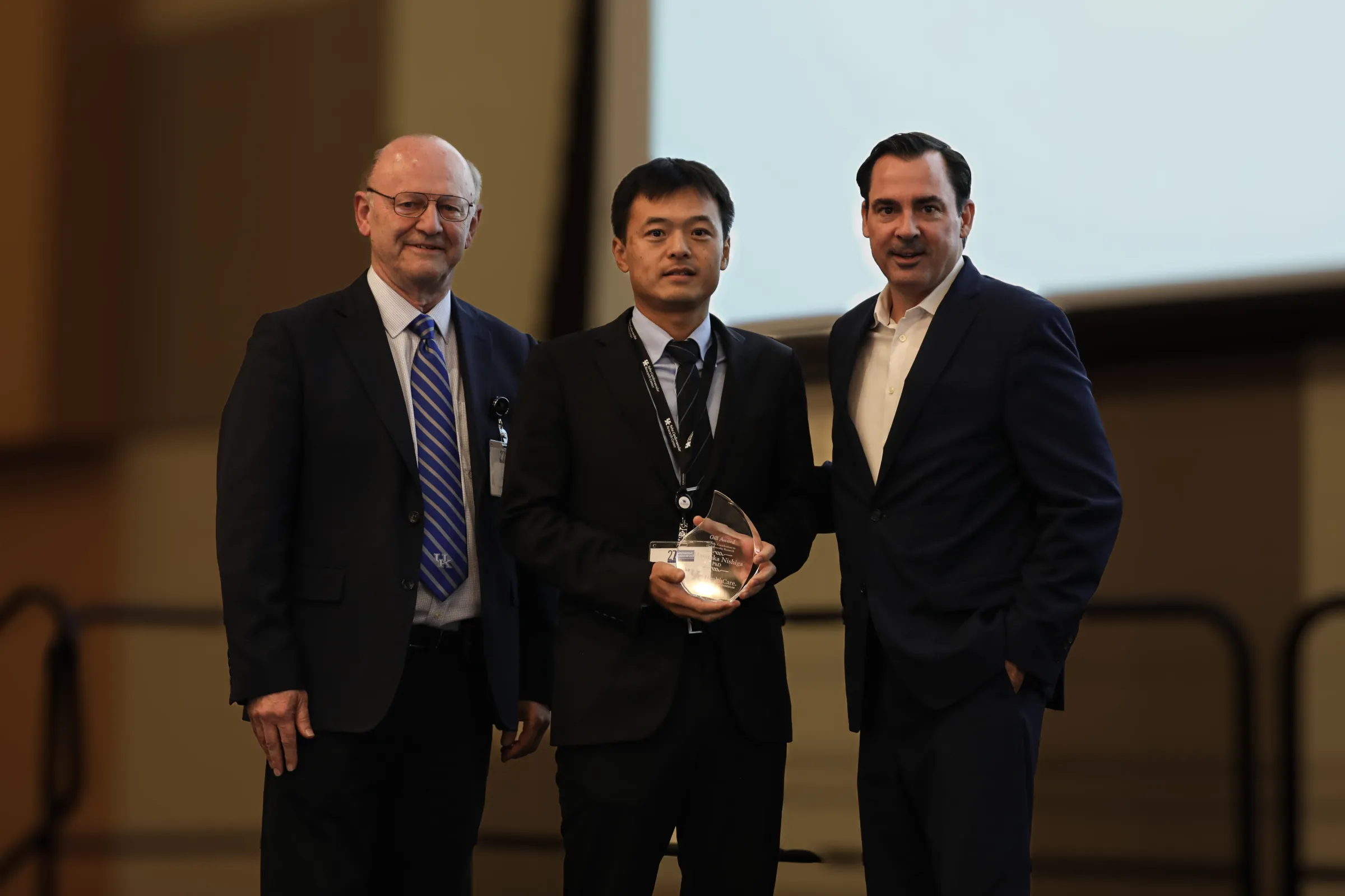
Masataka Nishiga, PhD
Instructor
Stanford Cardiovascular Institute
Incoming Assistant Professor
Ohio State University
About Dr. Nishiga
Dr. Nishiga is an Instructor at the Stanford Cardiovascular Institute. As motivated by his firsthand clinical experience during cardiology fellowship, he investigates the root of cardiac disease and heart failure to develop more effective therapies. At Stanford (Joseph Wu lab), he uses human iPSC models and CRISPR genome editing to study a range of cardiovascular conditions—from cancer therapy–induced cardiotoxicity and COVID-19–related cardiac injury to vascular inflammation linked to cannabis use. He is also an awardee of the NIH K99/R00 Pathway to Independence Award.
About Dr. Nishiga
Dr. Nishiga is an Instructor at the Stanford Cardiovascular Institute. As motivated by his firsthand clinical experience during cardiology fellowship, he investigates the root of cardiac disease and heart failure to develop more effective therapies. At Stanford (Joseph Wu lab), he uses human iPSC models and CRISPR genome editing to study a range of cardiovascular conditions—from cancer therapy–induced cardiotoxicity and COVID-19–related cardiac injury to vascular inflammation linked to cannabis use. He is also an awardee of the NIH K99/R00 Pathway to Independence Award.
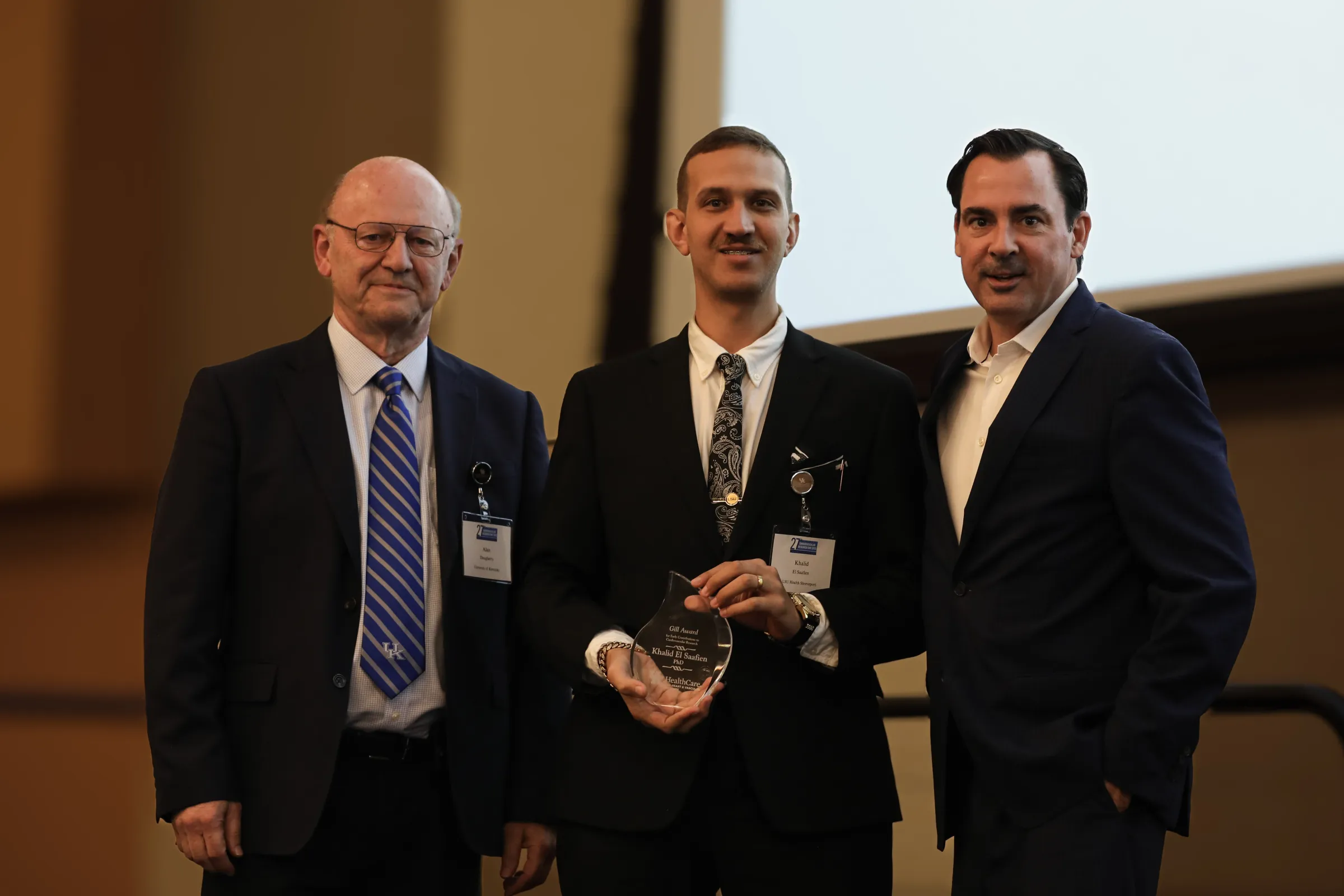
Khalid El Saafien, PhD
Assistant Professor
Louisiana State University Health Science Center at
Shreveport
About Dr. Saafien
Khalid El Saafien, PhD, is an integrative neurophysiologist with an interest in the autonomic control and regulation of blood pressure. Following the completion of his PhD in 2019 from the Florey Institute of Neuroscience and Mental Health, University of Melbourne, Australia, he joined the Krause-de Kloet laboratories at the University of Florida as a Postdoctoral Fellow. During his postdoctoral training, funded by an American Heart Association Postdoctoral Fellowship, he gained technical expertise in advanced approaches to interrogate autonomic circuits that regulate blood pressure. This included utilizing the Cre-LoxP system of genetic tailoring, virally directed gene transfer, advanced neuroanatomical tract-tracing, in vivo optogenetics and calcium imaging, and RNAscope in situ hybridization. In 2023, the Krause-de Kloet laboratories relocated to the
Neuroscience Institute at Georgia State University. There, Dr. El Saafien received a K99/R00 “Pathway to Independence” grant mechanism from the National Heart, Lung, and Blood Institute. This allowed him to establish his independent laboratory as an Assistant Professor in the School of Medicine at Louisiana State University Health Science Center – Shreveport in 2025. Dr. El Saafien’s research program aims to utilize state-of-the-art
approaches to interrogate how stretch and mechano-transduction at the aortic arch is translated into signals through vagal sensory afferent to regulate cardiovascular physiology. His goal is to establish novel therapeutic targets that alleviate hypertension.
About Dr. Saafien
Khalid El Saafien, PhD, is an integrative neurophysiologist with an interest in the autonomic control and regulation of blood pressure. Following the completion of his PhD in 2019 from the Florey Institute of Neuroscience and Mental Health, University of Melbourne, Australia, he joined the Krause-de Kloet laboratories at the University of Florida as a Postdoctoral Fellow. During his postdoctoral training, funded by an American Heart Association Postdoctoral Fellowship, he gained technical expertise in advanced approaches to interrogate autonomic circuits that regulate blood pressure. This included utilizing the Cre-LoxP system of genetic tailoring, virally directed gene transfer, advanced neuroanatomical tract-tracing, in vivo optogenetics and calcium imaging, and RNAscope in situ hybridization. In 2023, the Krause-de Kloet laboratories relocated to the
Neuroscience Institute at Georgia State University. There, Dr. El Saafien received a K99/R00 “Pathway to Independence” grant mechanism from the National Heart, Lung, and Blood Institute. This allowed him to establish his independent laboratory as an Assistant Professor in the School of Medicine at Louisiana State University Health Science Center – Shreveport in 2025. Dr. El Saafien’s research program aims to utilize state-of-the-art
approaches to interrogate how stretch and mechano-transduction at the aortic arch is translated into signals through vagal sensory afferent to regulate cardiovascular physiology. His goal is to establish novel therapeutic targets that alleviate hypertension.
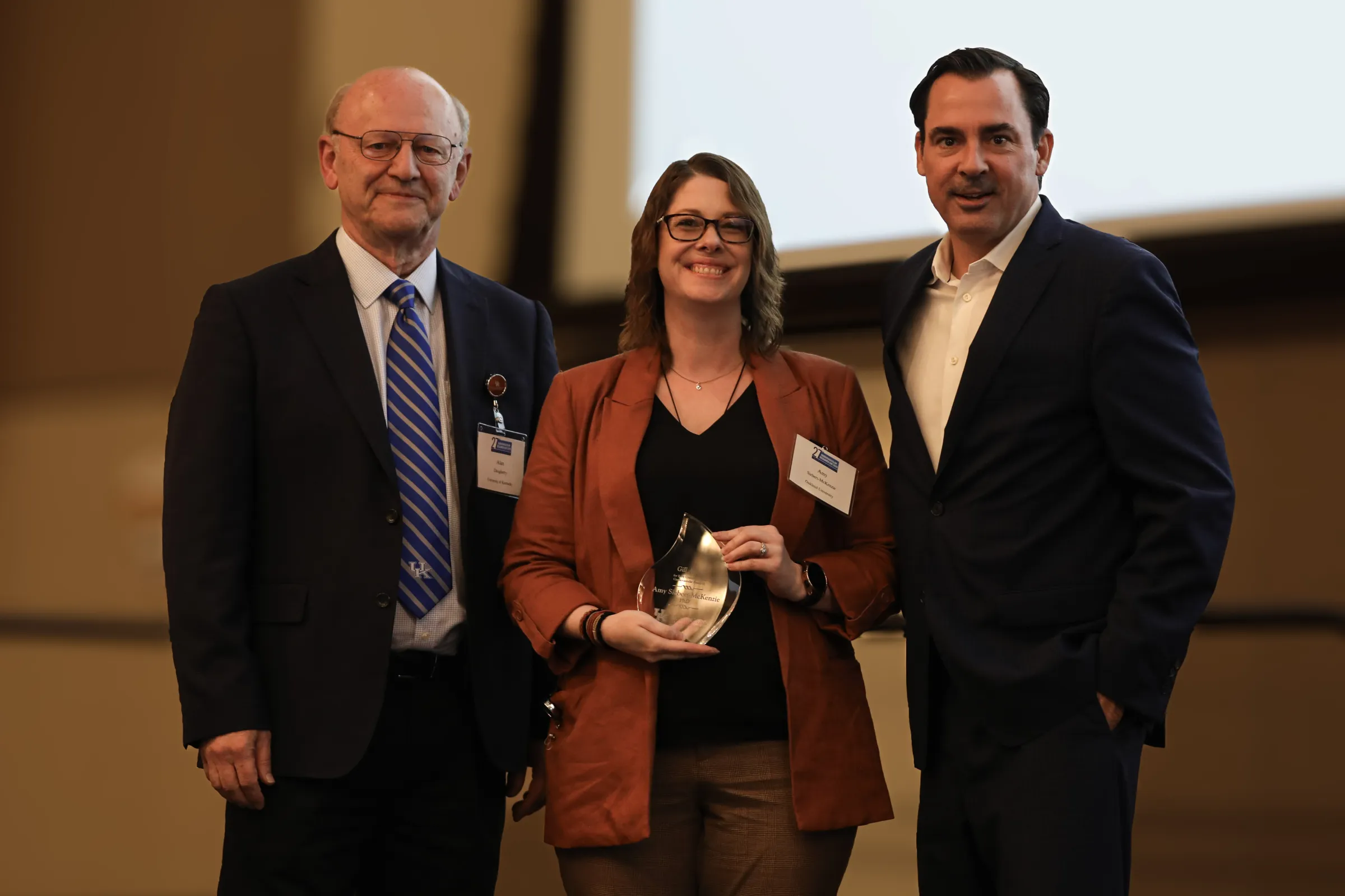
Amy Siebert-McKenzie, PhD
Assistant Professor
Oakland University
About Dr. Siebert-McKenzie
Amy Siebert-McKenzie, PhD is an assistant professor at the Oakland University William Beaumont School of Medicine in Rochester, Wisconsin. Her current research focuses on the function and expression of alternatively spliced Tissue Factor Pathway Inhibitor (TFPI) isoforms with particular interest in the biochemical and physiological interactions of TFPIα with Factor V and Factor V Leiden. Dr. Siebert-McKenzie’s independent research program will investigate how distinct alternative splicing events in TFPI and other clotting factors modulate the hemostatic balance and how these events are dysregulated in bleeding and clotting disorders.
About Dr. Siebert-McKenzie
Amy Siebert-McKenzie, PhD is an assistant professor at the Oakland University William Beaumont School of Medicine in Rochester, Wisconsin. Her current research focuses on the function and expression of alternatively spliced Tissue Factor Pathway Inhibitor (TFPI) isoforms with particular interest in the biochemical and physiological interactions of TFPIα with Factor V and Factor V Leiden. Dr. Siebert-McKenzie’s independent research program will investigate how distinct alternative splicing events in TFPI and other clotting factors modulate the hemostatic balance and how these events are dysregulated in bleeding and clotting disorders.
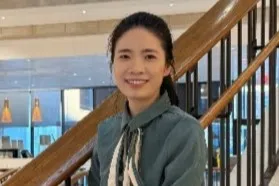
Mengmeng Huang, PhD
Postdoctoral Research Fellow
Boston Children’s Hospital/Harvard Medical School
About Dr. Huang
Dr. Huang is a postdoctoral research fellow at Boston Children’s Hospital and Harvard Medical School, where she investigates the genetic mechanisms that govern heart development and disease. Supported by an NIH K99/R00 Pathway to Independence Award, she leads projects that integrate zebrafish models, human iPSC-derived systems, engineered heart tissues, and large-scale in vivo CRISPR screening to dissect the roles of RNA-binding proteins and chromatin regulators in congenital heart disease, particularly hypoplastic left heart syndrome and heart failure. Her long-term goal is to establish an independent research program focused on how transcriptional and post-transcriptional regulation shapes cardiac
development and how its disruption contributes to disease, with the aim of activating regenerative pathways for cardiovascular repair.
About Dr. Huang
Dr. Huang is a postdoctoral research fellow at Boston Children’s Hospital and Harvard Medical School, where she investigates the genetic mechanisms that govern heart development and disease. Supported by an NIH K99/R00 Pathway to Independence Award, she leads projects that integrate zebrafish models, human iPSC-derived systems, engineered heart tissues, and large-scale in vivo CRISPR screening to dissect the roles of RNA-binding proteins and chromatin regulators in congenital heart disease, particularly hypoplastic left heart syndrome and heart failure. Her long-term goal is to establish an independent research program focused on how transcriptional and post-transcriptional regulation shapes cardiac
development and how its disruption contributes to disease, with the aim of activating regenerative pathways for cardiovascular repair.
| Gill Award Committee | |
|---|---|
| Ivor Benjamin, MD Director, Cardiovascular Center Medical College of Wisconsin | Anthony Demaria, MD Professor, Medicine UC San Diego |
| Kim Eagle, MD Director, Frankel Cardiovascular Center University of Michigan | Jane Freedman, MD Director, Division of Cardiovascular Medicine Vanderbilt University |
| Stan Hazen, MD, PhD Chair, Cardiovascular and Metabolic Sciences Cleveland Clinic | Joseph Hill, MD, PhD Division Chief, Cardiology UT Southwestern Medical Center |
| Peter Libby, MD Professor, Medicine Brigham and Women’s Hospital | Elizabeth McNally, MD, PhD Director, Center for Genetic Medicine Northwestern University |
| Dianna Milewicz, MD, PhD Vice Chair, Medical Genetics UT Health Sciences Center at Houston | Steven Nissen, MD Professor, Cardiovascular Medicine Cleveland Clinic |
| Peter Liu, MD Chief Scientific Officer University of Ottawa Heart Institute | Ann Marie Schmidt, MD Professor, Department of Medicine New York University |
| Clyde Yancy, MD Chief, Cardiology Northwestern University |